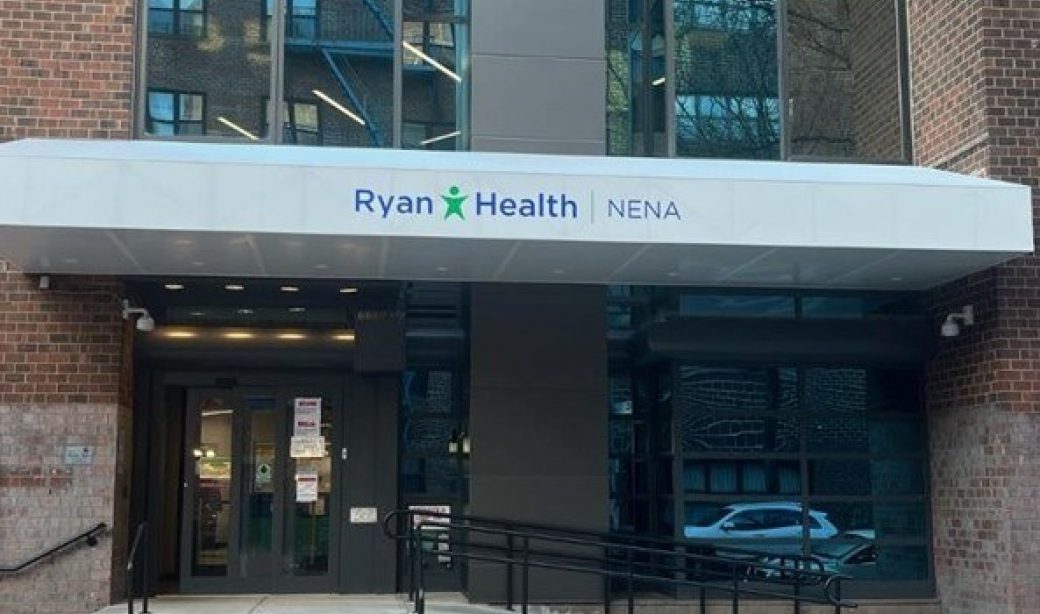Gastroenterology is a specialty service focused on care of the
digestive system and treatment of gastrointestinal diseases. Gastroenterologists
from Mount Sinai provide care at Ryan Health for diseases of the esophagus,
stomach, small intestine, pancreas, liver, and colon. Common problems that our gastroenterologists
treat include heartburn, difficulty swallowing, abdominal pain, nausea,
vomiting, diarrhea, constipation, and liver disease. Visiting a
gastroenterologist is also key to preventative care, including cancer
prevention.
Common conditions that we treat include:
- Heartburn and ulcers
- Constipation and diarrhea
- Difficulty swallowing
- Hepatitis B and C
- Gallbladder disease or gallstones
- Other liver diseases, such as cirrhosis and non-alcoholic steatohepatitis (NASH)
- Diagnosis and management of cancers of the esophagus, stomach, pancreas, liver, small intestine, and colon
To make an appointment at any Ryan Health center
appointment
A patient who needs a diagnostic procedure -- such as an endoscopy, colonoscopy, or endoscopic ultrasound of the pancreas and liver – or surgery are referred to Mount Sinai. Electronic medical records are shared seamlessly between the two healthcare organizations ensuring optimal continuity of care.
My Care Team

Armand Cassiarelli, MD
- Gastroenterology
Premetesh Chattoo, DO
- Specialty Care
- Gastroenterology
Lorenzo Ottaviano, MD
- Specialty Care
- Gastroenterology
Questions
Acid reflux or heartburn is the sensation of discomfort in the stomach or esophagus that is usually related to stomach acid washing up into the esophagus. People have some backwash of stomach acid into the esophagus that can cause variable levels of discomfort, as well as variable levels of damage to the esophagus. Acid reflux or heartburn can sometimes be associated with increased risk for cancer of the esophagus.
Ulcers are like blisters or craters in the stomach. The most common cause of ulcers is a bacterial infection of the stomach, which can be treated with medications. Some medications including Aspirin and Ibuprofen can also cause ulcers. Ulcers can cause pain and bleeding in the stomach or small intestine.
Colonoscopy is a very effective test to prevent and detect colon cancer. Colon cancer begins as a small growth in the colon called a polyp. Nobody knows what causes polyps, and polyps usually do not cause symptoms. A colonoscopy is a test to look inside the colon with a camera and search for polyps. If a polyp is found, it is removed. Removing polyps prevents colon cancer. It is recommended that people over 50 have a colonoscopy, or earlier for patients with a family history of colon cancer. If you have no polyps, then a colonoscopy can be repeated every 10 years. You may need more frequent colonoscopies if you have polyps.
Colon Cancer has no specific symptom, and sometimes it is found in early stages by colonoscopy in patients who feel well and are having a routine screening test. Early detection often allows for cure and increased survival from cancer. Some symptoms of colon cancer include blood in the stool, abdominal pain, change of bowel habits, weakness and fatigue, and unintentional weight loss.
Diarrhea is a change from your normal bowel habits including more frequent stool, urgency to move bowels, and loose stool. Diarrhea can be caused by infections, medications, and inability to digest some foods completely. Diarrhea can also be caused by inflammation of the lining of the colon and small intestines, and diseases of the pancreas. Sometimes the cause of diarrhea cannot be explained and may be related to stress or anxiety.
Constipation is an alteration from your normal bowel habits including less frequent stool or difficulty passing stool. Constipation is not usually a dangerous problem, but it may be uncomfortable. Constipation can be related to hormone disorders, medications, and diet. There are many ways to treat constipation including dietary modifications, physical activity, and medications.
Liver disease is usually detected by a blood test. Causes of liver disease include viruses (e.g., Hepatitis A, B, and C), medications, alcohol, and autoimmune disease. Sometimes fat can begin to be deposited in the liver and cause inflammation of the liver. Liver disease is often treatable or managed by medications to prevent progression or may even result in a cure.

